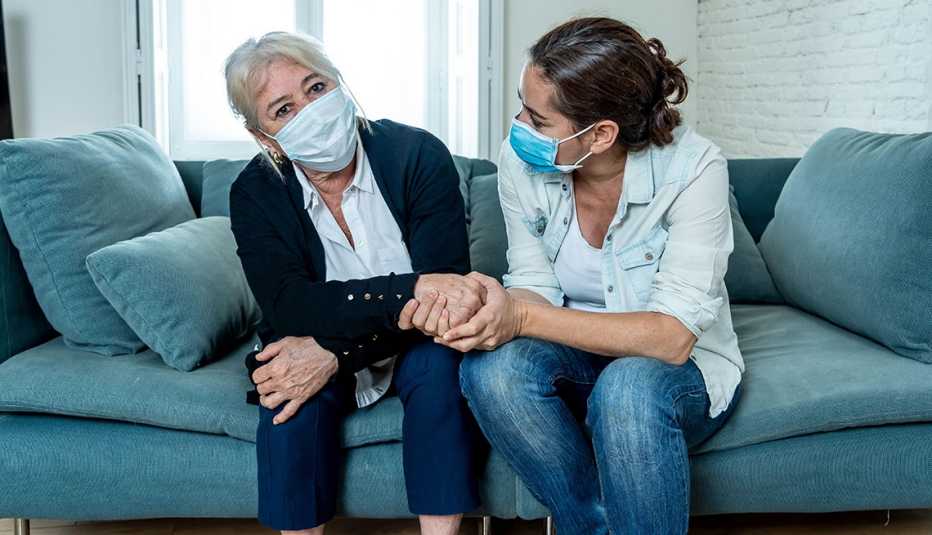AARP Hearing Center


It's hard to believe until it happens to you, but caregiving and crisis can strike at any time. The COVID-19 outbreak has forced all of us to face that possibility. Since the beginning of the year, many Americans have become caregivers for the first time. And half of those have become caregivers because of COVID-19. People who were already caregivers have been affected too. Nearly half of family caregivers are reporting that their caregiving responsibilities have increased because of the virus.
I became a caregiver over the summer (not because of the coronavirus). It's not my first experience caregiving for a loved one but doing so in the midst of a pandemic makes it feel brand new. I am not permitted to accompany my care partner inside medical appointments. In-home help is not readily available or easy to arrange. It's been frustrating and time-consuming to provide care in 2020.
Even for experienced caregivers, there's been a forced adaptation. By today's estimates, we can expect the virus to be a part of our lives for years to come. This means present and prospective caregivers need to account for the virus in their medical, legal and financial planning.
Preparing for the Unpredictable
A caregiver's biggest asset is time. Reports indicate that caregivers are spending an additional nine hours a week (a full workday!) on caregiving activities in 2020. And there are mental and physical tolls that are increasing stress significantly. Getting organized and preparing for caregiving events will give the gifts of time and reduced stress when duty calls.
Life care planning documents reduce caregiver strain
Americans don't like to talk about mortality. When asked, most people will agree that end-of-life planning is important, but less than 40 percent of people sit down to formalize their planning in writing. Since the outbreak, we've all been reckoning with the possibility of contracting a virus that can wreak havoc on long-term health and has taken the lives of many older Americans. If there's ever a time to talk about planning for an unexpected illness, this is it.
So, talk to your loved ones. The holidays are around the corner and while we may not be gathering as we have in the past, we can still reach out to family and friends. Take the opportunity to discuss life care planning and assist each other in making and sharing your legal and medical documents. Whether there is a family coronavirus crisis or some other unexpected event, you will be relieved that you've taken these steps.
Get your home — and yourself — ready
I've definitely lost sleep thinking about how my household will function if one of us contracts the virus. While I've had to make disaster plans as a caregiver in the past (living in hurricane-prone Florida and taking care of a parent with cancer and high-level medical needs meant having an evacuation plan and a stockpile of essential items), I avoided thinking about what would happen if I got sick. As a cancer caregiver, I got a flu shot and hoped for the best. As a caregiver and parent today, considering how I'll handle childcare and running our household (not to mention my business!) if I must self-quarantine because someone in my immediate family contracts the virus is an unavoidable reality.

































































Learn More About Family Caregiving
The Nonstop Juggle of Compound Caregiving
Ways to stay afloat when you are providing care for multiple people at the same time
1 in 5 Americans Now Provide Unpaid Family Care
New AARP research finds caregivers now top 53 million in U.S.
Preserving the Dignity of Our Aging Parents
Provide autonomy and choices wherever possible